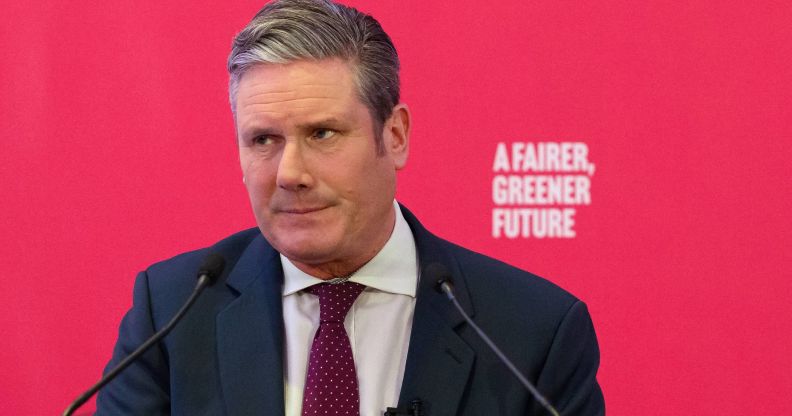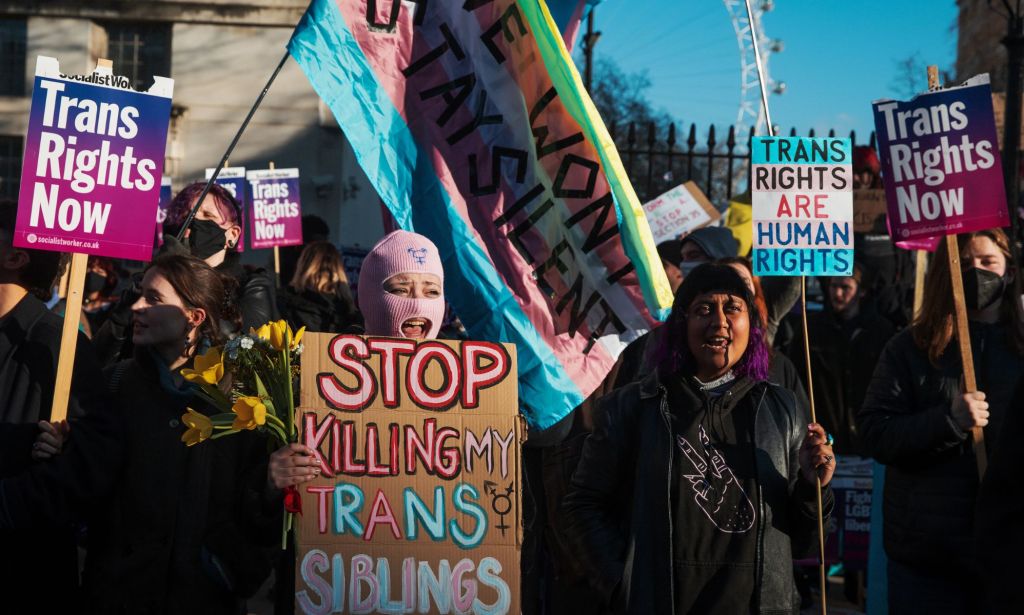Keir Starmer signals he’ll overrule Scottish Labour on trans rights

Keir Starmer has faced criticism for his remarks about trans people. (Getty)
Keir Starmer could potentially take direct control over Scottish Labour’s policy on trans rights following the blocking on Scotland’s gender recognition reform bill.
The Labour leader suggested the UK party could assume control over key decisions relating to the Gender Recognition Reform (Scotland) bill (GRR) going forward because he thinks it has “now become a UK-wide issue”.
Starmer was asked if he had spoken to Anas Sarward, the Labour leader at Holyrood, about the decision to whip his MSPs to vote for the GRR bill in a chat with Spectator. He said their “offices did” speak and added it’s time for his party, under his leadership, to “take the key decisions” going forward.
“Subsequently it has now become a UK-wide issue, not just a Scottish parliament issue,” Starmer said. “So it’s for the Labour party, under my leadership, to take the key decisions as we go forward from there.”
PinkNews has reached out to Scottish Labour for comment.
Keir Starmer faced backlash from other politicians, LGBTQ+ advocates and trans people over his comments on the GRR bill.

The GRR would make it easier for trans people in Scotland to apply for a Gender Recognition Certificate (GRC), and the measure was passed by Holyrood in December.
But in January, the UK government made an unprecedented intervention and used a Section 35 order under the Scotland Act of 1998 to prevent the bill from gaining Royal Assent and going into law.
This was a historic move as it marked the first time such a measure has been used since devolution of power to the Scottish parliament.
The act gives the UK government the power to intervene on bills “which the secretary of state has reasonable grounds to believe would be incompatible with any international obligations or the interest of defence or national security”.
Scottish secretary Alister Jack said he believed the GRR bill could have an impact on UK-wide equalities law, and he claimed the government there were concerns for “single-sex” spaces and “equal pay” protections.
Keir Starmer said he had “concerns” over how the GRR bill could affect the Equality Act. He also said that he considered 16 to be too young for an individual to transition and legally change their gender.

However, the Scotland gender bill has absolutely no effect on UK-wide equalities legislation. All the Scottish gender recognition forms would do is make it easier for trans people to apply for a GRC.
The GRR bill would remove the need for a medical diagnosis of gender dysphoria when applying for a GRC – in line with the advice from the World Health Organization. It would also drop the minimum age for applications to 16 and reduce the time someone needs to live in their acquired gender to just a couple of months.
Having a GRC allows trans people to update their birth certificate, get married or form a civil partnership in their affirmed gender, update their marriage or civil partnership certificate, and have their affirmed gender on their death certificate when they die.
A GRC is not a condition of access to single-sex spaces, and protections for trans people under the Equality Act are not contingent on having a GRC – the majority of trans people do not hold one.
How did this story make you feel?

